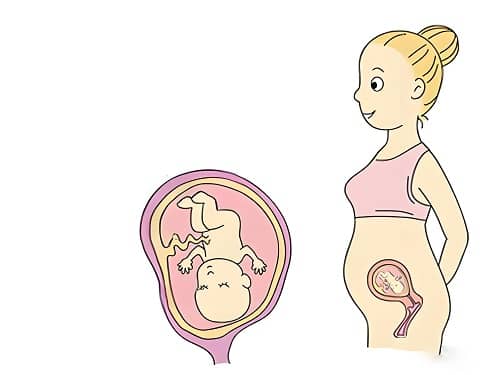Table of Contents
- Overview
- General Checkups
- Auxiliary Tests
- Ultrasound Examination
- Gynecological Checkups
- Specialized Tests
- Conclusion
1. Overview
The fifth month of pregnancy (17-20 weeks) is a crucial stage in fetal development, during which various organs have nearly formed, and the mother undergoes significant physical changes. Regular prenatal checkups are essential to ensure the health of both mother and baby. Below are the standard prenatal examination items during this period.

2. General Checkups
- Weight and Blood Pressure Monitoring: Each prenatal visit involves measuring the mother’s weight and blood pressure to monitor weight gain and blood pressure levels, preventing conditions such as gestational hypertension.
- Fundal Height and Abdomen Circumference Measurement: Measuring fundal height and abdomen circumference helps assess the fetus’s size and growth rate, providing a reference for future prenatal management.
3. Auxiliary Tests
- Complete Blood Count (CBC): This test checks hemoglobin and other indicators to assess whether the mother has anemia and to understand changes in white blood cells and platelets, ruling out potential infections.
- Urinalysis: Analyzing urine for cells, protein, and sugar assesses the mother’s urinary system health and provides preliminary insights into kidney function.
- Liver and Kidney Function Tests: Blood tests are conducted to evaluate the mother’s liver and kidney function, preventing liver and kidney diseases during pregnancy.
- Hepatitis B Antibody Test: This test assesses the mother’s Hepatitis B infection status, providing a basis for preventing mother-to-child transmission.
4. Ultrasound Examination
- Fetal System Ultrasound: Commonly performed between 20-24 weeks, this detailed examination, often referred to as the anomaly scan, uses high-resolution ultrasound images to observe the fetus’s organs and systems, such as the heart, brain, spine, and limbs, to exclude the possibility of structural abnormalities. It also checks the placenta’s position to identify any conditions like placenta previa or placental abruption.
5. Gynecological Checkups
- Vaginal and Cervical Examination: This assessment checks the health of the vagina and cervix for any abnormal discharge or signs of infection.
- Uterine Size and Shape Evaluation: Through palpation or ultrasound, the healthcare provider evaluates whether the size and shape of the uterus correspond to the gestational age, as well as the position of the fetus and the placenta.
6. Specialized Tests
- Amniocentesis or Non-Invasive DNA Testing: For older mothers or those at risk for chromosomal and genetic abnormalities, amniocentesis or non-invasive DNA testing may be necessary to further assess the fetus’s chromosomal and genetic status. These tests are typically performed under the guidance of a healthcare provider, taking into account the mother’s specific circumstances and risks.
7. Conclusion
Prenatal checkups in the fifth month of pregnancy are vital for ensuring the health of both mother and baby. The examination process includes general checkups, auxiliary tests, ultrasound examinations, gynecological checkups, and specialized tests. Pregnant women should communicate openly with their healthcare providers to understand the specific arrangements for checkups and maintain healthy lifestyle habits to ensure a safe pregnancy. If any abnormalities occur, seeking prompt medical attention can help safeguard both mother and child.